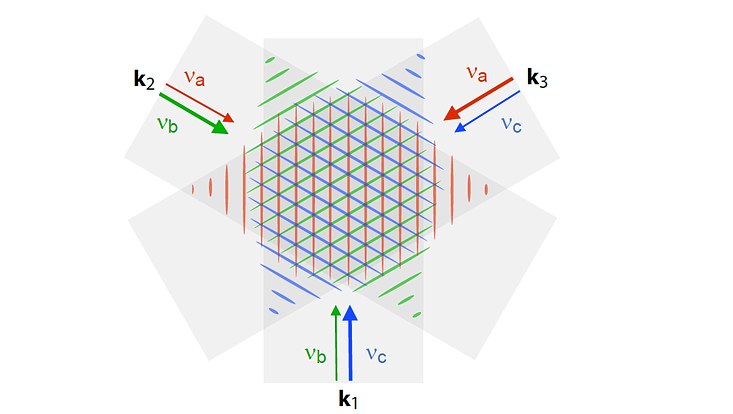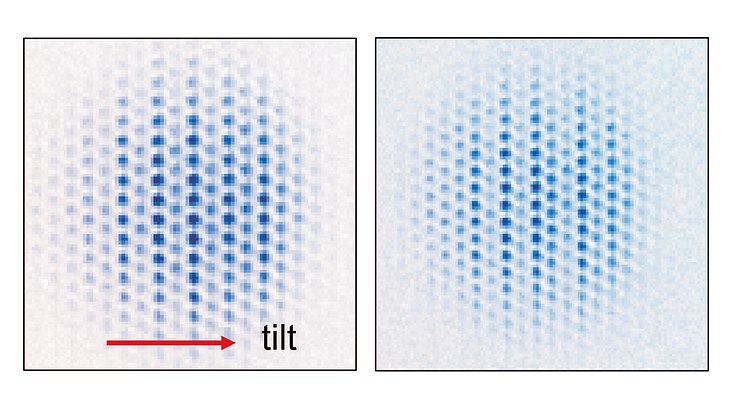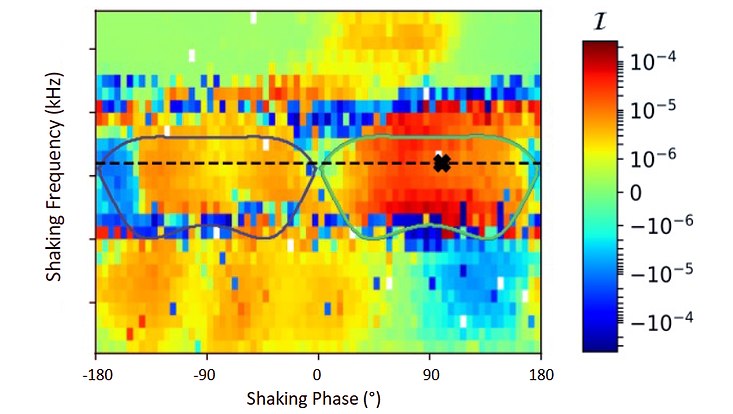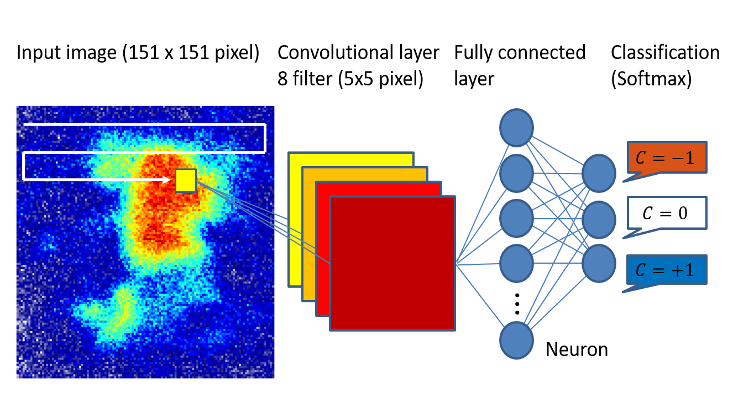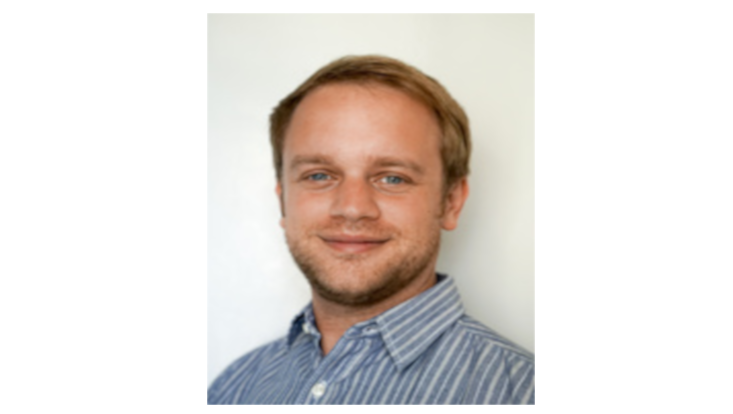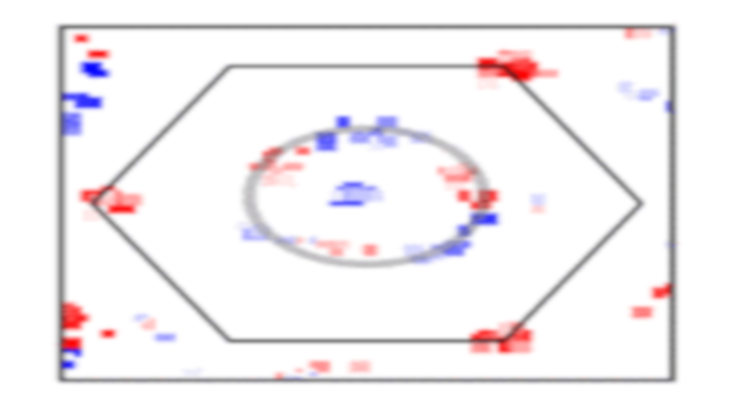Bose-Fermi mixtures
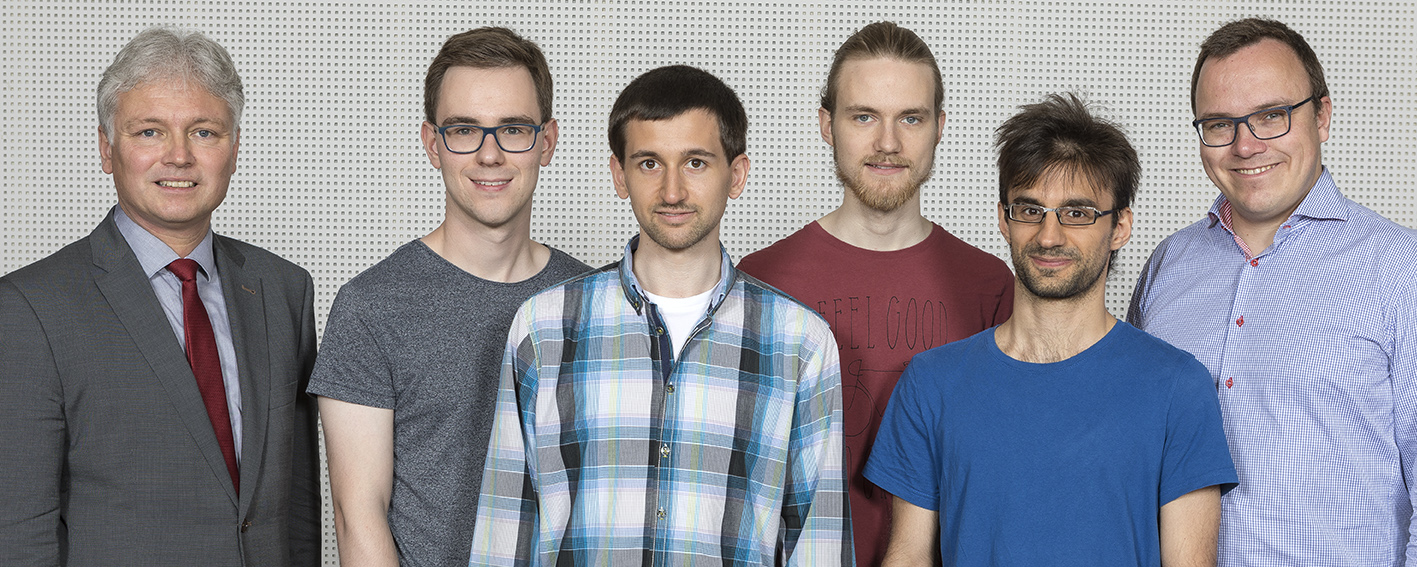 Photo: UHH, RRZ/MCC, Mentz
Photo: UHH, RRZ/MCC, Mentz
Left to Right: Klaus Sengstock, Niklas Käming, Marcel Kosch, Henrik Zahn, Luca Asteria, Christof Weitenberg. not shown: Jonathan Bracker
Introduction
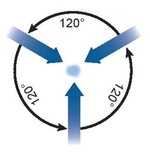
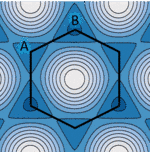
In this project, we work with mixtures of fermionic potassium (40K) and bosonic rubidium (87Rb) quantum gases in optical lattices. This system offers unique experimental possibilities for the exploration of fundamental quantum mechanics and condensed matter physics using the high degree of control and the tunability of the interactions via Feshbach resonances. In the current experiments, we use the bosonic rubidium for sympathetic cooling of the fermionic potassium gas in order to bring it to quantum degeneracy with large particle numbers.
Currently we work with tunable hexagonal lattices, which we control via the polarisation of the three lattice beams intersecting under 120°. Starting from a honeycomb lattice, we can break inversion symmetry by adding an energy offset between the A and B sites of the lattice. We have recently created topological bands by near-resonant dressing of the two lowest bands and have studies various topological effects, such as the Berry curvature, dynamical linking number and quantized circular dichroism. In the future we want to study spin-mixtures in these bands in order to understand the intriguing interplay between interactions and topological band structures leading, e.g., to fractional Chern insulators.
Moreover, we are interested in the application of machine learning techniques in quantum physics and have used them for the identification of topological phases from single momentum-space images.
For an overview of our research efforts on Floquet engineering of topological matter, see our recent talk at the KIPT program TOPOLOGY21
The BFM Team
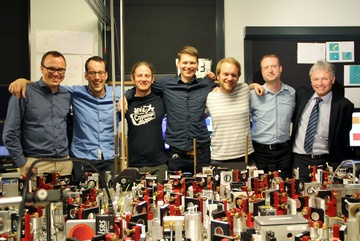
BFM team (2016) from left to right: Dr. Christof Weitenberg (principal investigator), Dr. Benno Rem (post doc), Dominik Vogel (PhD student), Matthias Tarnowski (PhD student), Nick Fläschner (PhD student), Dr. Dirk-Sören Lühmann (theory support), Prof. Dr. Klaus Sengstock (principal investigator).


